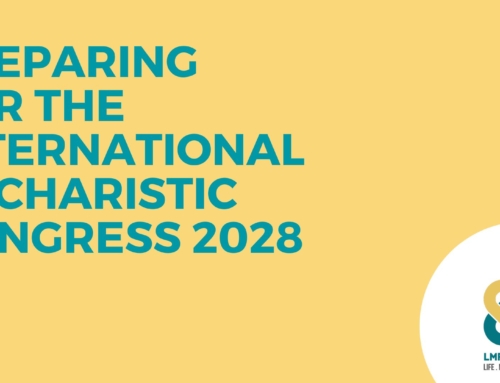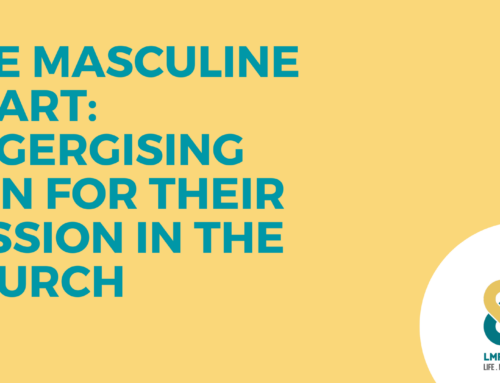This week we feature the homily of Pope Francis to the Roman Rota on the opening of the judicial year. He calls attention to a number of noteworthy ideas which are relevant to those who work in marriage formation. Of particular note is his recognition of one of the most influential couples in the early Church – Aquila and Priscilla. You can read it below and click the link to leave a comment – we’d welcome your reflections.
“Excellency,
Dear prelate auditors,
I extend my cordial greetings to each of you, beginning with the Dean, whom I thank for his words. I greet those taking part in this meeting: the officials, the lawyers and other assistants of the Apostolic Tribunal of the Roman Rota. I offer all of you my sincere good wishes for the Judicial Year we are inaugurating today.
The society in which we live is increasingly secularised, and does not further the growth of faith. As a result, the Catholic faithful struggle to bear witness to a lifestyle that is consistent with the Gospel, including with regard to the Sacrament of Marriage. In this context, the Church and her whole organizational structure, should act in harmony, in order to offer appropriate spiritual and pastoral support. In your daily ministry to Christian marriage, you deal with aspects that are not only part of the theology and canon law of marriage, but also, and first of all, the very essence of Christ’s Church: unity and fidelity. Indeed, these two marital “assets”, in fact, before being, or rather, in order to be, the legal obligations of every conjugal union in Christ, must be the manifestation of baptismal faith.
In order for marriage to be valid, each of the future spouses must establish full unity and harmony with the other, so that through the mutual exchange of their respective human, moral and spiritual riches — almost as if they were communicating vessels — the two spouses may become as one. Marriage also requires the commitment of fidelity, that lasts throughout life, becoming a stable consortium totius vitae (can. 1135).
Unity and fidelity are two important and necessary values, not only between spouses, but also more generally, in interpersonal and social relationships. We are all aware of the inconvenient factors which, in civil coexistence, lead to unfulfilled promises and the lack of fidelity to the promise made and to commitments assumed.
Unity and fidelity. These two indispensable and fundamental marital values must not only be appropriately presented to future spouses, but also require the pastoral action of the Church, especially of bishops and priests, to accompany the family in its different phases of formation and development. Naturally, such pastoral action cannot be confined to the completion of paperwork, albeit necessary and to be done carefully. A threefold approach to marriage preparation is needed: prior, forthcoming, and permanent. It is advisable that the latter cover the various phases of married life, presenting them in a serious and structural way, by means of a thorough formation aimed at increasing the spouses’ awareness of the precise values and commitments inherent in their vocation.
By virtue of their office and ministry, the pastors are the main subjects of this marriage formation. However, it is particularly timely, indeed necessary, to involve the ecclesial communities through their various components, who share the responsibility for this pastoral care, under the guidance of the diocesan bishop and the parish priest. Thus, the duty is shared in solidum, with pastors taking the primary responsibility helped by the active participation of the community in promoting marriage and in accompanying families with spiritual and formative support.
In order to understand this pastoral need, it will be good for us to consider the experience of the holy spouses Aquila and Priscilla [narrated] in the Scriptures. They were among the most faithful companions in the mission of Saint Paul who called them gratefully and affectionately his sinergoi, that is, assistants who wholeheartedly shared in the Apostle’s concerns and work. One is impressed and moved by Paul’s acknowledgement of the missionary work of these spouses. And at the same time, one can recognize how this synergy was a precious gift of the Spirit to the first Christian communities. Let us ask the Holy Spirit therefore, to give to the Church today too, priests who are able to appreciate and value the charisms of spouses with a robust faith and apostolic spirit, like Aquila and Priscilla.
To fulfil the Church’s steady and permanent pastoral care for the good of marriage and of the family, various pastoral tools are required: drawing close to the Word of God, especially through the lectio divina, catechetical encounters, involvement in the celebration of the Sacraments, especially the Eucharist; spiritual dialogue and direction. Informal groups and charitable services can be organized to promote exchanges with other families and openness to the needs of the most disadvantaged.
On the other hand, spouses, who live their marriage in generous unity and with faithful love, supporting each other with the grace of the Lord and with the necessary support of the ecclesial community, are in turn a precious pastoral aid to the Church. Indeed, they offer to all an example of true love and become witnesses and assistants of the fruitfulness of the Church herself. Truly, many Christian couples are a silent sermon for all, a “weekday” sermon, I would say, for every day. And we must unfortunately note that a married couple that has lived together for many years does not make the news — this is sad — while scandals, separations and divorces do (cf. Homily at Santa Marta, Friday, 18 May 2018).
Spouses who live in unity and fidelity are a good reflection of the image and likeness of God. This is the good news: that fidelity is possible, because it is a gift in spouses and in priests. This is the news that should surely strengthen and console bishops and priests in their faithful ministry filled with evangelical love, just as the love and conjugal faithfulness of the spouses Aquila and Priscilla were of comfort to Paul and Apollos.
Dear Prelate Auditors, I renew my gratitude to each one of you for the good you do for the People of God, in the service of justice through your verdicts. In addition to the importance of the judgement itself for the interested parties, these contribute to the correct interpretation of matrimonial law. This law is at the service of the salus animarum and of the faith of spouses. Thus, we comprehend the timely reference in the Rota’s verdicts to the principles of Catholic doctrine, with regard to the natural idea of marriage, its duties and rights, and even more so, with regard to its sacramental reality.
Thank you very much for your work! I invoke divine assistance upon it, and I heartily impart my Apostolic Blessing. And please, do not forget to pray for me. Thank you!”
© Copyr





